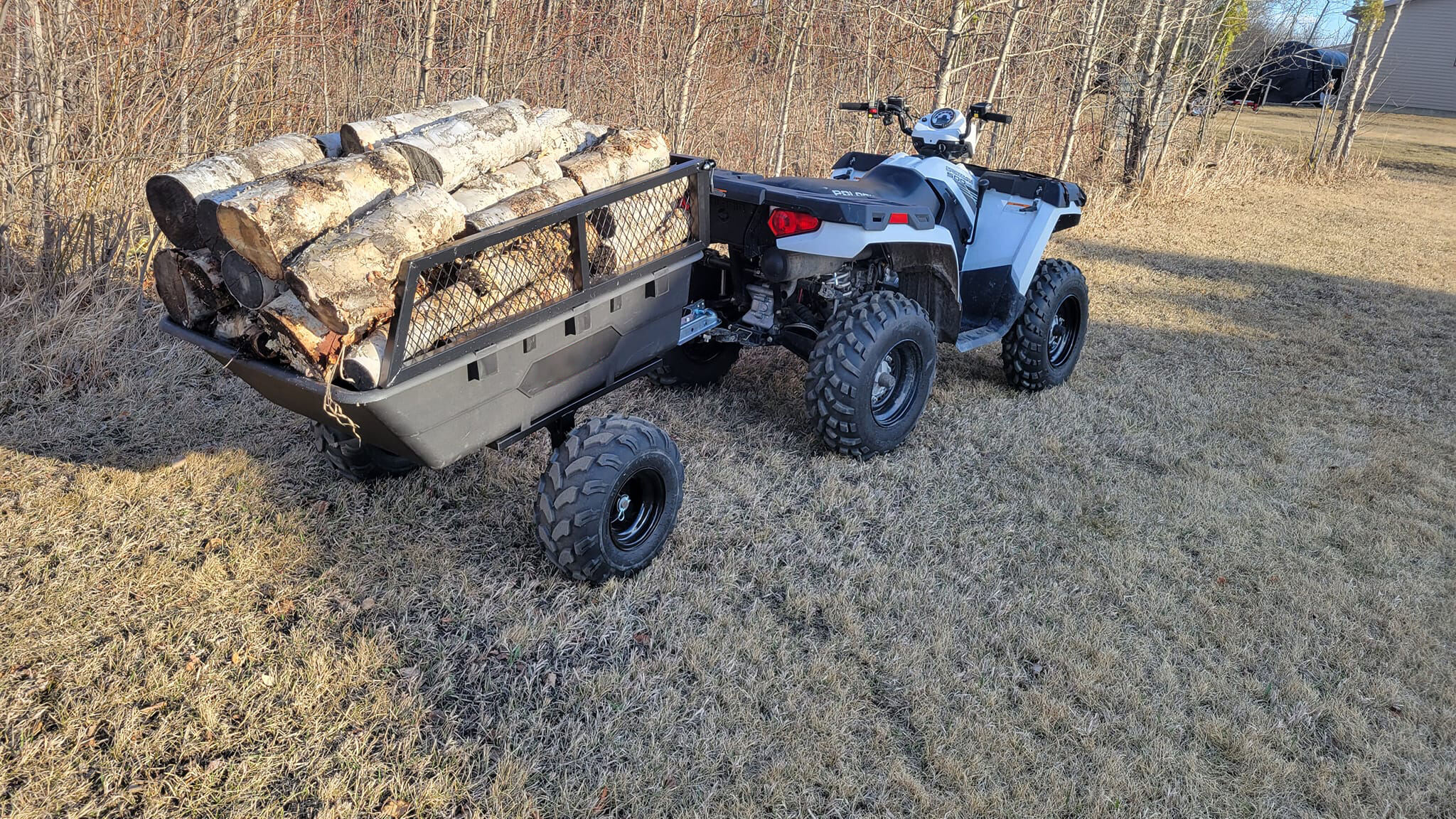Understanding the Impact of Wheel Width on Lawn Protection
When it comes to maintaining pristine lawns while transporting equipment, the choice of atv trailer wheels becomes crucial. The relationship between wheel width and turf protection has long been a topic of discussion among property owners and landscaping professionals. The physics behind weight distribution and ground pressure plays a vital role in determining how different wheel configurations affect the grass beneath them.
Modern atv trailer wheels come in various widths, each designed to serve specific purposes and terrain types. The growing concern for lawn preservation has led to innovations in wheel design, with manufacturers focusing on developing solutions that minimize ground disturbance while maintaining optimal functionality.
The Science Behind Wheel Width and Ground Pressure
Surface Area Distribution Principles
The fundamental principle behind wider atv trailer wheels lies in the distribution of weight across a larger surface area. When the same load is spread over a bigger footprint, the pressure exerted on each square inch of turf decreases significantly. This reduced pressure translates to less soil compaction and minimal grass blade damage.
Consider a simple comparison: a narrow wheel concentrates the trailer's weight into a small contact patch, much like wearing stilettos on soft ground. In contrast, wider atv trailer wheels work more like snowshoes, spreading the load evenly and reducing the likelihood of creating ruts or damaging grass roots.
Weight Distribution Mechanics
The physics of weight distribution plays a crucial role in how atv trailer wheels interact with lawn surfaces. Wider wheels provide better stability and improved load bearing characteristics, which becomes particularly important when navigating uneven terrain or making turns. This enhanced stability reduces the chances of sudden weight shifts that could potentially damage turf.
Professional landscapers often opt for trailers equipped with wider wheels specifically because they understand the long-term benefits of proper weight distribution. The initial investment in quality atv trailer wheels pays dividends in reduced lawn repair costs and maintained property aesthetics.
Benefits of Wide-Profile Trailer Wheels
Reduced Soil Compaction
One of the primary advantages of utilizing wider atv trailer wheels is the significant reduction in soil compaction. Compacted soil can lead to poor grass growth, reduced water absorption, and weakened root systems. Wide-profile wheels help maintain soil structure by distributing the trailer's weight more evenly across the terrain.
Studies have shown that properly selected wide wheels can reduce soil compaction by up to 30% compared to standard narrow wheels. This preservation of soil structure ensures better lawn health and reduces the need for frequent aeration treatments.
Enhanced Traction and Stability
Wider atv trailer wheels provide superior traction, which is particularly beneficial when operating on wet or slippery surfaces. The increased contact area between the wheel and ground creates better grip, reducing the likelihood of slipping or sliding that could potentially tear up grass.
The improved stability also means less side-to-side movement when towing, which helps prevent the creation of diagonal ruts or grass damage from wheel spin. This is especially important when making turns or navigating slopes on landscaped areas.
Selecting the Right Wheel Width for Your Needs
Load Capacity Considerations
When choosing atv trailer wheels, it's essential to consider the typical loads you'll be carrying. Wider wheels generally offer better load-bearing capacity, but they must be properly matched to your trailer's specifications. The ideal width depends on factors such as maximum payload, frequency of use, and typical operating conditions.
Professional landscapers recommend selecting wheels that provide a balance between width and load rating. This ensures optimal performance while maintaining lawn protection capabilities. Remember that overloading even the widest wheels can still result in turf damage.
Terrain and Usage Patterns
Different lawn types and terrain conditions may require specific wheel configurations. The selection of atv trailer wheels should take into account the softness of the ground, typical moisture conditions, and the frequency of use. Wheels that perform well on firm, established lawns might not be suitable for newly sodded areas or particularly wet conditions.
Consider the seasonal changes in your region and how they affect ground conditions. Some operators opt for interchangeable wheel sets to adapt to varying conditions throughout the year, maximizing both performance and lawn protection.
Maintenance and Care for Optimal Performance
Regular Inspection Protocols
To maintain the turf-protecting benefits of wide atv trailer wheels, regular inspection and maintenance are essential. Check for proper inflation, signs of wear, and any damage that could affect performance. Proper tire pressure is crucial for maintaining the optimal contact patch with the ground.
Establish a routine maintenance schedule that includes cleaning, pressure checks, and bearing maintenance. This proactive approach helps ensure your wheels continue to provide maximum lawn protection and optimal performance throughout their service life.
Seasonal Adjustments
Different seasons may require adjustments to your atv trailer wheels' setup. In wetter conditions, slightly lower tire pressures can help increase the contact patch and further reduce ground pressure. However, always stay within the manufacturer's recommended pressure range to prevent tire damage or unsafe operating conditions.
Keep detailed records of seasonal adjustments and their effects on lawn protection. This information can help optimize your wheel configuration for different times of the year and various ground conditions.
Frequently Asked Questions
What is the optimal width for ATV trailer wheels on residential lawns?
The optimal width typically ranges between 8 to 12 inches for residential lawn applications. However, the exact width should be determined based on your specific trailer weight, typical loads, and lawn conditions. Consider consulting with a professional or manufacturer for recommendations tailored to your situation.
How much can wider wheels reduce lawn damage compared to standard wheels?
Wider atv trailer wheels can reduce lawn damage by 40-60% compared to standard narrow wheels, primarily through better weight distribution and reduced ground pressure. The actual reduction depends on factors such as soil type, moisture content, and total load weight.
Are wider ATV trailer wheels worth the additional investment?
While wider wheels may have a higher initial cost, they often prove cost-effective in the long run through reduced lawn repair expenses, improved stability, and better overall performance. The investment typically pays for itself through decreased maintenance needs and extended lawn life.

 EN
EN
 AR
AR
 BG
BG
 HR
HR
 CS
CS
 DA
DA
 NL
NL
 FI
FI
 FR
FR
 DE
DE
 HI
HI
 IT
IT
 JA
JA
 KO
KO
 NO
NO
 PL
PL
 PT
PT
 RO
RO
 RU
RU
 ES
ES
 SV
SV
 TL
TL
 IW
IW
 ID
ID
 LV
LV
 LT
LT
 SR
SR
 SK
SK
 VI
VI
 ET
ET
 HU
HU
 TH
TH
 TR
TR
 AF
AF
 MS
MS
 LO
LO
 LA
LA
 MR
MR


